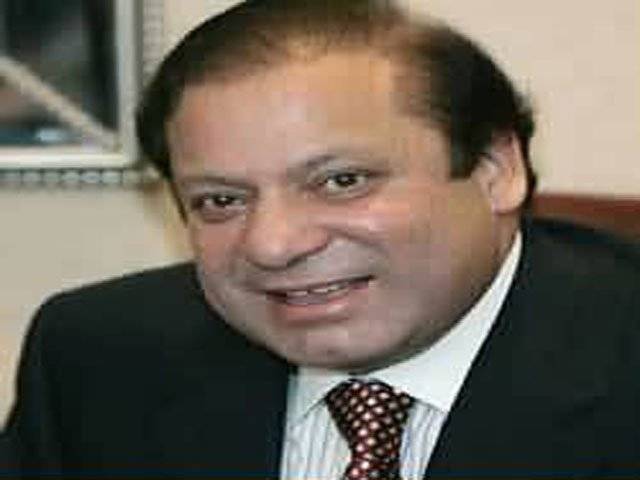ISLAMABAD - Much trumpeted parleys on new pricing mechanism for, inter alia, the petroleum products Thursday hit an impasse as the two parties at loggerheads over the imminent hike proposed up to 13 per cent from February 1, 2011. Sources privy to the bipartisan subcommittee on pricing mechanism with Petroleum Minister Syed Navid Qamar in the chair told The Nation that the proposed increase in the petroleum products was simply unacceptable to the PML-N members. The PML-N members were of the view that the petroleum prices must be capped at the present level until the bipartisan subcommittee came up with a mutually agreeable new pricing formula, the sources added. The Ministry of Petroleum and Natural Resources gave a detailed briefing to the subcommittee of the two parties and apprised that anymore capping of the petroleum prices would require billions of rupees. According to the Ministry, the freezing of the prices would not only require substantial of subsidy to pay differential to the oil marketing companies but also cost the government in terms revenue loss as higher price pays higher tax. The Ministry told the subcommittee that the government had already booked loss of Rs10 billion as it had to pay Rs5 billion to the OMC as price differential and an equal amount it lost due to lowered rate of petroleum development levy. In a bid to convince the PML-N, the government side pointed it out that further subsidising the prices of the petroleum products would put further pressure on deficit that had already been crossing the limits agreed upon with an International Monetary Fund (IMF), the sources said. On the other hand, the sources added, the PML-N members remained adamant on the demand that the prices must be kept capped until the finalisation of a new formula. According to the sources, the critical issue of petroleum prices that were the item no one in the ten-point agenda of PML-N leader Mian Nawas Sharif could stall the ongoing bipartisan parleys. The government being in a better political position as against the state of lacking even simple majority early in this month might not succumb to the oppositions pressure to keep the prices unchanged as it did earlier, the sources observed. Earlier, the Ministry informed the subcommittee that the government would have to increase the petrol price by Rs9.43 per litre and diesel Rs9.20 per litre from February 1, 2011. According to the sources, the meeting failed to develop consensus on oil pricing mechanism to adjust rising impact of oil prices. The increase in petrol price by 13 percent and diesel by 12 percent inevitable due to surging trend in the global oil prices, the sources said while quoting the minister. However, the parliamentarians demanded of the Government to abolish petroleum levy (PL) on petroleum products and deemed duty on high-speed diesel (HSD) to provide relief to the consumers. There is no justification of charging PL when the government is already collecting General Sales Tax (GST) on petroleum products, the parliamentarians added. The committee was informed that receivables of Pakistan State Oil (PSO) against different entities including power sector stood at Rs100 billion in beginning of current financial year 2010-11 that had swelled to Rs142 billion. The government should take measures to reduce line losses of power distribution companies rather than increasing oil prices, the parliamentarians said. The Ministry of Petroleum informed that the government would have to face revenue loss of Rs30 billion during the next six months (January-July 2011) if oil prices are not increased. The government should take steps to end corruption from Federal Board of Revenue, the parliamentarians added. Moreover, the parliamentarians were informed that the government would have to print more currency notes in case of revenue loss on account of PL on petroleum products. This initiative will cause depreciation of rupee and increase in inflation in the country, the officials said. While talking to reporters after meeting, Sardar Mehtab Abbasi said that the government should reduce the line losses of Discos that stood at Rs120 billion. The government should improve its fiscal management, he said. MQM parliamentarians said that the government is appointing 6000 officials in organisation, which requires only 500 people that would destroy the departments. Petroleum Minister Syed Naveed Qamar said that a discussion was held on oil pricing formula and the parliamentarians wanted removal of deemed duty. The financial health of refineries is poor and their production has reduced, he said adding that the government will have to print more currency notes if prices were not increased that would cause inflation.
Friday, April 19, 2024
PPP-N parleys hit impasse

China's EV tech offers opportunity for Pakistani auto industry
9:27 AM | April 19, 2024
PM calls for reforms to reduce circular debt
April 19, 2024
Pakistan, Turkiye to expand defence ties
April 19, 2024
20pc Discos employees involved in power theft: Minister
April 19, 2024
Five govt officials shot dead in D I Khan
April 19, 2024
Hepatitis Challenge
April 18, 2024
IMF Predictions
April 18, 2024
Wheat War
April 18, 2024
Rail Revival
April 17, 2024
Addressing Climate Change
April 17, 2024
Justice denied
April 18, 2024
AI dilemmas unveiled
April 18, 2024
Tax tangle
April 18, 2024
Workforce inequality
April 17, 2024
New partnerships
April 17, 2024
ePaper - Nawaiwaqt
Advertisement
Nawaiwaqt Group | Copyright © 2024





